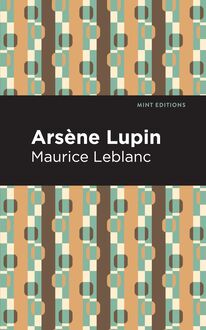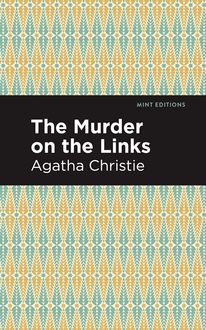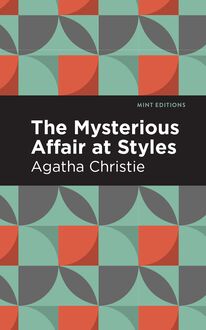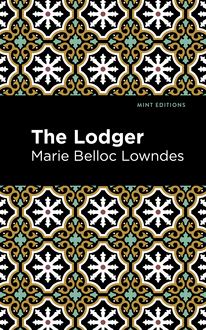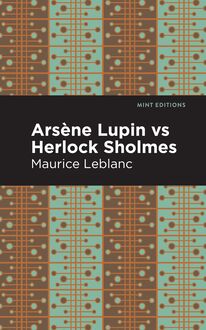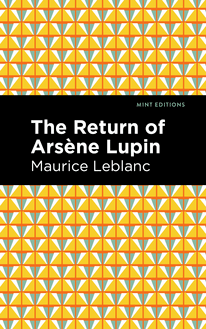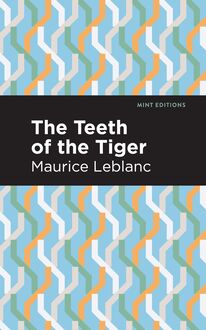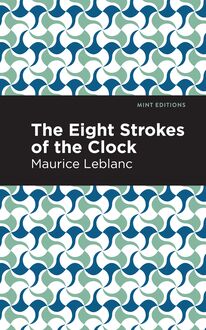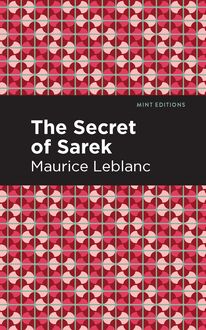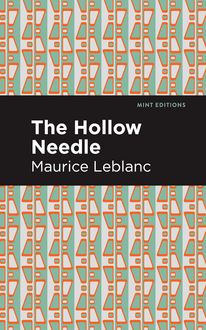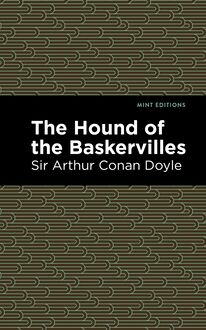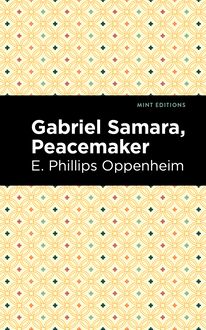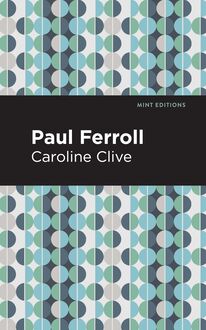-
 Univers
Univers
-
 Ebooks
Ebooks
-
 Livres audio
Livres audio
-
 Presse
Presse
-
 Podcasts
Podcasts
-
 BD
BD
-
 Documents
Documents
-
- Cours
- Révisions
- Ressources pédagogiques
- Sciences de l’éducation
- Manuels scolaires
- Langues
- Travaux de classe
- Annales de BEP
- Etudes supérieures
- Maternelle et primaire
- Fiches de lecture
- Orientation scolaire
- Méthodologie
- Corrigés de devoir
- Annales d’examens et concours
- Annales du bac
- Annales du brevet
- Rapports de stage
La lecture à portée de main
Vous pourrez modifier la taille du texte de cet ouvrage
Découvre YouScribe en t'inscrivant gratuitement
Je m'inscrisDécouvre YouScribe en t'inscrivant gratuitement
Je m'inscrisEn savoir plus
Vous pourrez modifier la taille du texte de cet ouvrage
En savoir plus

Description
A Dateless Bargain (1887) is a novel by Catherine Louis Pirkis. Known for her contribution of Victorian detective fiction, Pirkis wrote over a dozen novels and countless stories throughout her brief career as a professional writer. Among them, A Dateless Bargain is an undervalued study of family, class, and trauma that will be of particular interest to scholars of English aristocracy and the rise of the women’s rights movement. At their enormous estate in Gloucestershire, Mab and Joyce—daughters of the immensely wealthy Irving Shenstone—are decorating their father’s study in anticipation of his arrival by train. With the help of their gardener, they obtain hundreds of flowers to garnish his desk and bookshelves. Amid the excitement, Mab falls asleep and has a dream where her father stands before her. Unbeknownst to the girls and their mother, Irving Shenstone disembarked from his train at five minutes to twelve, slipped while stepping onto the platform, and struck his head, dying instantly. When the news reaches them, their idyllic life is shattered in an instant, forcing Joyce and Mab to grow up long before their time. A Dateless Bargain is a novel of romance, fortune, and tragedy by a relatively unknown writer of Victorian fiction whose work deserves reassessment by readers and critics alike. With a beautifully designed cover and professionally typeset manuscript, this edition of Catherine Louis Pirkis’ A Dateless Bargain is a classic of Victorian English literature reimagined for modern readers.
Sujets
Informations
| Publié par | Mint Editions |
| Date de parution | 07 décembre 2021 |
| Nombre de lectures | 0 |
| EAN13 | 9781513286976 |
| Langue | English |
| Poids de l'ouvrage | 1 Mo |
Informations légales : prix de location à la page 0,0500€. Cette information est donnée uniquement à titre indicatif conformément à la législation en vigueur.
Extrait
A Dateless Bargain
Catherine Louisa Pirkis
A Dateless Bargain was first published in 1887.
This edition published by Mint Editions 2021.
ISBN 9781513281957 | E-ISBN 9781513286976
Published by Mint Editions®
minteditionbooks.com
Publishing Director: Jennifer Newens
Design & Production: Rachel Lopez Metzger
Project Manager: Micaela Clark
Typesetting: Westchester Publishing Services
C ONTENTS I II III IV V VI VII VIII IX X XI XII XIII XIV XV XVI XVII XVIII XIX XX XXI XXII XXIII XXIV XXV XXVI XXVII XXVIII XXIX XXX XXXI XXXII XXXIII XXXIV XXXV XXXVI XXXVII XXXVIII XXXIX XL XLI XLII XLIII XLIV XLV XLVI XLVII XLVIII XLIX L LI LII LIII LIV LV LVI LVII
I
“Lock the door, Mab, then we can begin to turn things upside down in comfort. Now what room in the house is most unlike a study?”
“Is it a conundrum,” laughed Mab; “or do you wish for a straightforward answer? It wants thinking over. A housekeeper’s room, perhaps, or a kitchen—”
“Oh, what unrefined notions you have! If you had asked me, I should have said a lady’s boudoir. You get your inspiration from your brown holland sleeves and apron. Look at yourself in the glass. What a splendid housemaid was lost in you!”
These two young people gossiping so gaily on a bright May morning were Mabel and Joscelyn Shenstone, only children of Irving Shenstone, one of the largest landowners in the county of Gloucestershire. He was expected home on this day from a ten days’ visit to London, and his daughters were preparing a welcome for him in his sanctum by turning things generally upside down.
“We want to leave the mark of our presence in the room,” Joscelyn had informed her mother over the breakfast-table that morning, “so that when father sits down and kicks off his boots—as he always does in his study—he will say, ‘Mab did that, I’ll swear, and Joyce made that other lovely arrangement.’ ”
These sisters, in appearance, were like and unlike each other as only sisters can be. They were each of them tall, slender girls, with well-shaped heads, a profusion of dark brown hair, and large hazel-gray eyes. But here all likeness ended; for the truth must be told, Joyce was one of the handsomest girls the county could boast of, while Mab stood close upon the border of plainness. Joyce’s complexion was that of a brilliant brunette, while Mab was unmistakably sallow. Joyce had the straightest and prettiest of Grecian noses, a small mouth all dimples and curves; Mab’s nose was somewhat aquiline, her mouth wide and innocent of dimples and curves. Joyce’s general expression was one of buoyant happiness; Mab, as a rule, wore so deep a look of intellectual thought as to amount almost to melancholy, or, to speak exactly, of anxious apprehension.
It was characteristic of these sisters that while Mab was attired in the neatest of black gowns, which she had furthermore essayed to protect from dust by thoroughly congruous holland apron and housemaid’s sleeves, Joyce’s sole preparation for her morning’s mimic housewifery had been to pin back her pretty cambric skirt into one graceful fold behind, thereby disclosing in front her dainty slippers and slender ankles.
Mab took a long, steady look at herself in the mirror.
“I think I must be a born housemaid; I always feel so thoroughly at home with a dusting-brush in my hand,” she began, musingly.
But Joyce was not at all in a mood for either musing or attitudinizing that morning.
“Well, then, begin and use it, my dear, as if you were ‘to the manner born,’ ” she replied, laughingly, giving Mab a little push in the direction of the writing-table, which stood at right-angles to the glass. “You set to work on the ink-bottles; empty them every one—you know I’m going to turn them all into flower-vases—while I attack the book-shelves.”
Mab made a little demur.
“It doesn’t seem the right thing to do with ink-bottles, and where—where shall I throw the ink?”
“Oh, you want so much telling! You a housemaid, indeed! Why, out of the window, of course; never mind about the flowers underneath. Now, a clever maid would have jumped at that idea before I could have spoken.”
Mab made another demur, muttering something to the effect “that it wasn’t exactly the sort of work a housemaid would have given to her.” It was, however, a very little demur, for, although Joyce was nearly two years younger than Mab, she invariably acted the elder sister, and Mab was, so to speak, completely “under her thumb.”
So splash, splash, went bottle after bottle of ink from the window on the flower-bed beneath.
“It will dye those pansies a magnificent blue-black,” laughed Joyce, hard at work at her book-shelves. “Old Donovan will throw up his hands in admiration when he comes round next with his watering-pot. Look here, Mab, here’s a whole row of books on farming, cattle-rearing, and such like nonsense. Shall I turn them all the wrong way—upside down, that is—or with their backs to the wall?”
“I think you might let the books alone, Joyce.”
“Good gracious! What for? Why, books are the first thing to be thought of in a study. If I let the books alone, what may I touch? Ah, I’ve an idea! I’ll rummage about for some poetry-books; there are sure to be a lot behind somewhere, or on the upper shelves, and I’ll push back all the dreadfully useful books and put all the poetry in front. Now, won’t that be splendid? Oh, good gracious, good gracious!” This in an utterly surprised tone. “Here are heaps upon heaps of poetry-books! Why, there’s Shelley, Keats, Coleridge, Shakespeare! Oh, no end of Shakespeare; a dozen volumes at least. Who would have thought that father had ever in his whole life been an admirer of the poets? These books have every one of them his name on the fly-leaf in his own writing!”
Mab left her writing-table all in a hurry.
“I thought it! I knew it!” she said, excitedly. “I felt certain father had been all but a poet before he went in so much for farming and that sort of thing; and I know I’m right in never opening a book of poetry—” she stopped herself abruptly.
Joyce turned upon her amazed.
“Why—why shouldn’t you read poetry, if you like?” she cried. “That’s it! I know you’re acting up to some funny notion you’ve taken into your head. You’ve given up music, you’ve given up painting, you are always doing plain needlework, or poring over housekeeping books. What does it mean? What’s the idea, Mab?”
Mab went back to her writing-table.
“Look, Joyce,” she said, quietly, “I’ve emptied all the ink-bottles. Now, don’t you think we ought to begin getting the flowers? Shall I go and ask Donovan to cut a basket-full?” Which remark, it will be seen, was in no sort an answer to Joyce’s question.
It served, however, to divert her attention.
“Ask Donovan?” she cried. “Are you out of your mind? Why, if we went down on our knees to him he wouldn’t give us more than a handful of the commonest garden-flowers and just a few very full-blown azaleas, with very short stalks, out of one of the hot-houses. No, thank you; I’m going out to help myself this time, and I shall come back with armfuls of everything—tulips, hyacinths—everything that’s spring-like and delicious. Oh, the dust!” Here a fit of sneezing prevented further exclamation.
Whereupon Mab volunteered her services.
“Let me finish those book-shelves while you get the flowers. You only want all the poetry in front, and the farming-books pushed back, so that father won’t be able to lay his hand upon anything he wants. Isn’t that it?” she asked, setting to work briskly on the volumes.
A door opening off this little study led, by a flight of steps, straight into the garden, now, thanks to a singularly sunny month of May, in the full glory of its spring blossoming.
Down these steps went Joyce with the biggest pair of scissors she could find. Back again in something under five minutes she came, with a nosegay so huge she was compelled to hold her dress-skirt in either hand to help carry it into the room.
She deposited the flowers in a heap on the floor—snowy hawthorn boughs, “deep tulips dashed with fiery dew, laburnums, dropping-wells of fire.”
“There’s a lot more coming,” she cried, gleefully. “I came upon Kathleen just now, and told her to bring all the hyacinths in pots she could lay her hands upon. Ah, here she is!” This added as a remarkably pretty and, for her station, daintily-attired damsel appeared upon the scene burdened with two full-flowering hyacinths in pots.
This was Kathleen Donovan, the gardener’s daughter, who acted as maid to the two young ladies. Hers was a face that in another sphere of life might have won for her a ducal coronet, or at least a dangerous reputation as a successful beauty. Not a faultlessly beautiful face, but a face so full of sparkle, of betwitching brightness, and changeful coquetry that one looked at it, and looked again, without having the remotest notion of what shape or size were the features, what color were eyes and hair. It was a typical Irish face, not the face one is accustomed to associate with orange baskets and green-and-red shawls, but rather with the harps and the Irish melodies, the breeze-blown Norah Creinas, and the sweet vales “where the bright waters meet.” Her manner was Irish too—soft, arch, betwitching—though with an English veneer upon it, caught from constant daily contact with her young mistresses.
“Ever so many more, Kathleen,” cried Joyce. “I am going to fill the fireplace with hyacinths. I want this room to be as unlike a study and as much like a bower as we can make it. Never mind what your father says, bring everything you can get hold of that has leaves and flowers.”
Off went Kathleen; down went the two girls on their knees, breaking branchlets from the boughs of laburnum and hawthorn, arranging the big, yellow tulips against a plumed background of lilac, doing, in fact, their very utmost to convert this chosen seat of Minerva into a shrine fit for Flora herself.
“It’s like desecration,” murmured Mab, looking remorsefully
-
 Univers
Univers
-
 Ebooks
Ebooks
-
 Livres audio
Livres audio
-
 Presse
Presse
-
 Podcasts
Podcasts
-
 BD
BD
-
 Documents
Documents
-
Jeunesse
-
Littérature
-
Ressources professionnelles
-
Santé et bien-être
-
Savoirs
-
Education
-
Loisirs et hobbies
-
Art, musique et cinéma
-
Actualité et débat de société
-
Jeunesse
-
Littérature
-
Ressources professionnelles
-
Santé et bien-être
-
Savoirs
-
Education
-
Loisirs et hobbies
-
Art, musique et cinéma
-
Actualité et débat de société
-
Actualités
-
Lifestyle
-
Presse jeunesse
-
Presse professionnelle
-
Pratique
-
Presse sportive
-
Presse internationale
-
Culture & Médias
-
Action et Aventures
-
Science-fiction et Fantasy
-
Société
-
Jeunesse
-
Littérature
-
Ressources professionnelles
-
Santé et bien-être
-
Savoirs
-
Education
-
Loisirs et hobbies
-
Art, musique et cinéma
-
Actualité et débat de société
- Cours
- Révisions
- Ressources pédagogiques
- Sciences de l’éducation
- Manuels scolaires
- Langues
- Travaux de classe
- Annales de BEP
- Etudes supérieures
- Maternelle et primaire
- Fiches de lecture
- Orientation scolaire
- Méthodologie
- Corrigés de devoir
- Annales d’examens et concours
- Annales du bac
- Annales du brevet
- Rapports de stage
